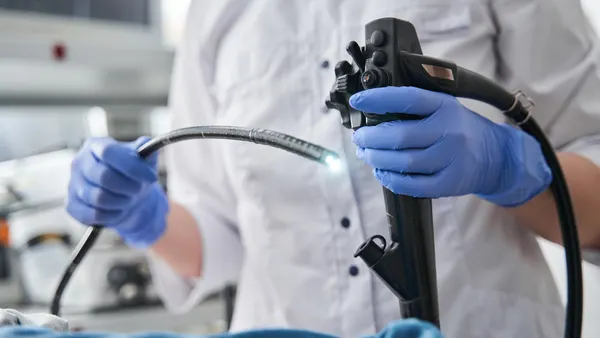Dive Brief:
-
FDA has cleared a rapid diagnostic test for the Ebola virus for use in the U.S. for the first time, the agency said Thursday.
-
The diagnostic, OraSure Technologies' OraQuick Ebola Rapid Antigen Test, enables providers to assess within 30 minutes whether a patient or recently deceased individual is likely to be infected with the virus.
-
FDA thinks the test will bolster efforts to contain Ebola outbreaks by cutting the time it takes to diagnose patients and facilitating safe burials.
Dive Insight:
FDA first cleared the test under its Emergency Use Authorization pathway in 2015, enabling OraSure to use it in the outbreak that was affecting West Africa at that time. Providers used the test on blood from patients and oral fluid from recently deceased individuals to deliver a preliminary diagnosis that could then be confirmed by an Ebola virus nucleic acid test.
The use of OraQuick during the outbreak informed FDA's decision to clear the test via its De Novo pathway this week. Based on the data, FDA only cleared OraQuick for use in the testing of symptomatic patients. The restriction reflects the fact the test may fail to detect low levels of the virus. The World Health Organization picked up on the same limitation when it told providers weak positive samples may take up to 30 minutes to register as a positive result.
The limitation means OraQuick cannot be used in mass-screening programs, such as the assessment of passengers at airports. However, FDA still said the test can play a useful role in controlling Ebola as it addresses two important tasks.
"The ability to use this test to promptly make a presumptive Ebola diagnosis could help providers to more quickly isolate patients and begin treatments that can be potentially life-saving. Additionally, this device could be used to support safe and dignified burials while helping to reduce the risk of transmission during those burials," Acting FDA Commissioner Ned Sharpless said in a statement.
Sharpless described fast diagnoses and safe burials as among "the most important tools in stopping these outbreaks." The outbreak in the Democratic Republic of Congo, which killed 2,100 people over the past 14 months, is now "significantly contained," the United Nations said Thursday, but there is still a risk that it will flare up. OraQuick could play a role in controlling such flare ups.
The clearance of OraQuick is part of an ongoing effort to improve and expand the toolkit available to health workers. Over the past year, FDA has authorized the first Ebola test with a battery-powered reader and researchers have tested the use of surface-enhanced Raman scattering tags to quickly detect Ebola antigens.












